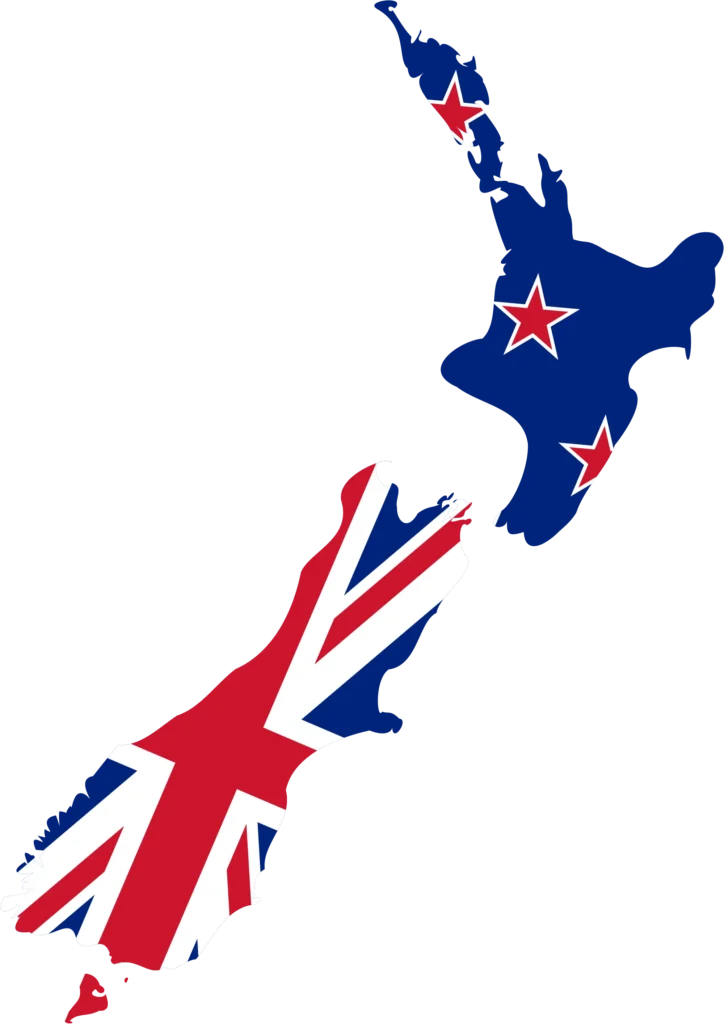New Zealand
Wellington, New Zealand dollar (NZD)

Study in New Zealand
New Zealand is a country in the south western Pacific Ocean consisting of 2 main islands, both marked by volcanoes and glaciations. Capital Wellington, on the North Island, is home to Te Papa Tongarewa, the expansive national museum. Wellington’s dramatic Mt. Victoria, along with the South Island’s Fiordland and Southern Lakes, stood in for mythical Middle Earth in Peter Jackson’s “Lord of the Rings” films. New Zealand has well-reputed universities, diverse communities, stunning scenery and a variety of outdoor pursuits. The smaller class sizes offer more individual assistance to the students and practical as well as academic achievements are rewarded well. Universities offer a very supportive learning environment where the students are encouraged to be inquisitive and creative.
- Quick Info
- Why Study In New Zealand
- Education System / Cost
- Test / Intake
- Popular Universities / Courses
- Capital of Newzealand: wellington
- Languages spoken:English, Mãori, Newzealand sign language
- Government:Unitary Parliamentary Constitutional Monarchy
- Population of Newzealand: 4,468,200
- Currency:NewZealand dollar (NZD)
- Time zone:(UTC+12)
- Get work permit- Once you complete your graduation course in New Zealand, you get the work permit along with your certificate to work In New Zealand.
- Get residential permit- Once you complete your graduation course and get work permit, it will help you to get residential permit as well.
- You can work during vacation- If you are pursuing higher studies in New Zealand in any full-time course, then you can avail work permit during the vacation period.
- You can work part-time– If you are a full-time course pursuing student, then you can work 20-hours per week during your term.
- Internationally recognized degree– The degree that you acquire by studying in New Zealand, is internationally recognized.
- High quality education- All you study in New Zealand is the most updated course that will help you to stay updated with all the modern techniques and technologies.
- Get good job- As there is a shortage of skilled manpower in IT and other courses in New Zealand, hence you get higher chances to get a good job in New Zealand after completion of your studies.
- Nature at its best- New Zealand has a mesmerizing natural beauty that attracts tourists almost throughout the year. Hence, plenty of bus, air service are available to travel to the beaches and other tourist spots that you can enjoy in the weekends.
- Education and Culture- So you have decided finally not going to feel tense if you are coming from New York City or London to study. The good thing is that you will see not more than four million people who live on the country, so no overcrowded city not more tension. You will feel cool and calm environment when you decided to study in New Zealand.
New Zealand’s education system has 3 levels and reflects our unique and diverse society.
New Zealand’s education system has 3 levels:
- early childhood education – from birth to school entry age
- primary and secondary schools – from 5 to 19 years of age (school is compulsory from 6 to 16 years of age)
- further education – higher and vocational education.
Our education system reflects our unique and diverse society. We welcome different abilities, religious beliefs, ethnic groups, income levels and ideas about teaching and learning. We have processes in place to give our students consistent, high-quality education at all levels.
Educational Cost
The cost of studying in New Zealand is comparatively affordable than other countries. Tuition fee depends upon the chosen course and its duration. The cost of an undergraduate degree varies from NZ$ 18,000 and NZ$ 25,000 per year and post-graduation studies cost somewhere between NZ$ 10,000 and NZ$ 30,000. The living expenses depend upon your location and range between NZ$ 7,000 and NZ$ 12,000 per year. The same depends on your lifestyle and accommodation.
Test:
- IELTS: International English Language Testing System
Intake:
- February
- July
- October
Popular Courses
- Agricultural Science
- Food Science
- Environmental Management
- Civil and Mechanical Engineering
Popular Universities
- University of Auckland
https://www.auckland.ac.nz/en.html
- University of Otago
- University of Canterbury
- Victoria university of wellington
- University of Waikato
- Massey university
- Lincoln university
- Auckland university of technology
